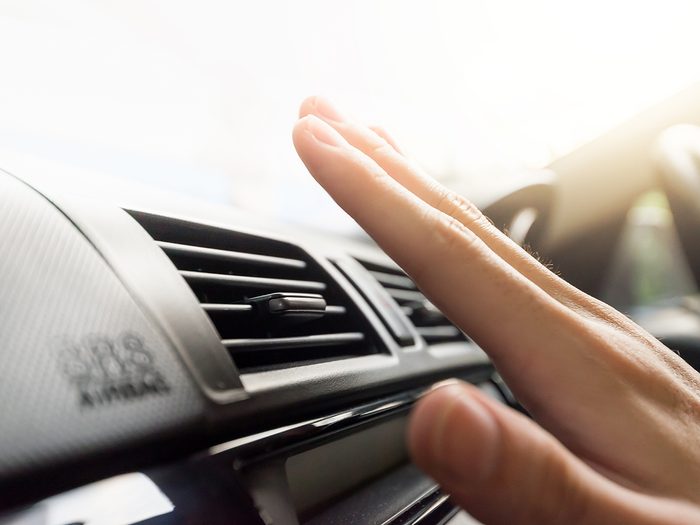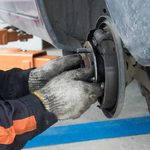Does Driving Without the Air Conditioner On Actually Save Gas?

Sure, you can sweat it out without turning on a vehicle's air conditioning. But is it worth the sacrifice?
Until the day arrives when we’re all driving electric cars, most drivers need to purchase gasoline on a somewhat regular basis. So any little trick to improve gas mileage and get the most out of a tankful is welcome. But can you save on gas by sweating it out in the heat of summer and not using your car’s air conditioning system?
It’s possible. But the more you dig into this, the more you realize you won’t save enough to make much difference, let alone buy a new Porsche. We’ll walk you through the details.
Does Your Car’s AC Use Gas?
In short, yes, but not really enough to matter, according David Bennett, manager of repair systems for the American Automobile Association (AAA). “The AC system, when operating, does add a slight load to the engine, which could slightly increase gas usage,” he says. “This usage would not be recognized by most consumers.”
Can You Save Gas By Driving Without AC?
As much as we’d like to deliver a definite “yes!” or even a “no!” to this question, it’s more complicated than that. That’s because you need to consider your vehicle’s specific configuration and the type of AC compressor it uses.
“At a very high level, there may be a slight gas savings with the AC off and windows up,” Bennett says. “However, the savings would be minor and not realized by most consumers.”
What About Just Opening the Windows?
Turning your car into a sauna is never a smart idea. A miserable driver is a distracted, unsafe driver. But rolling down the windows and driving with them open reduces fuel efficiency even more than blasting the AC.
“Running the air conditioner when driving is actually more efficient and saves gas as compared to driving with the windows down,” Bennett says. “When the windows are up, the vehicle is more aerodynamic. When the windows are down, this creates excess drag on the vehicle, which increases resistance.”
What Are Some Ways to Improve Fuel Economy?
If you want to significantly improve your kilometres per litre, forget about the AC. Look elsewhere. AAA has plenty of tips online, but here are a few to note.
- Tire pressure: “Having tires that are improperly inflated will have more impact on gas mileage than whether the AC is used or not,” Bennett says. “Overinflated tires are less of an issue, but underinflated tires have a higher rolling resistance, which reduces fuel economy.”
- Drive conservatively. Avoid rapid acceleration and hard braking. AAA notes that can lower fuel economy by 15 to 30 percent at highway speeds and 10 to 40 percent in stop-and-go traffic.
- Avoid excessive idling. If you’ll be stopped for a minute or more and if it’s safe to do so, shut off your engine. An idling car consumes one to two litres of fuel per hour.
- Proper vehicle maintenance: To improve fuel economy, consumers should maintain their vehicle according to the manufacturer’s recommended service schedule.
Next, learn how to find the cheapest gas near you.






